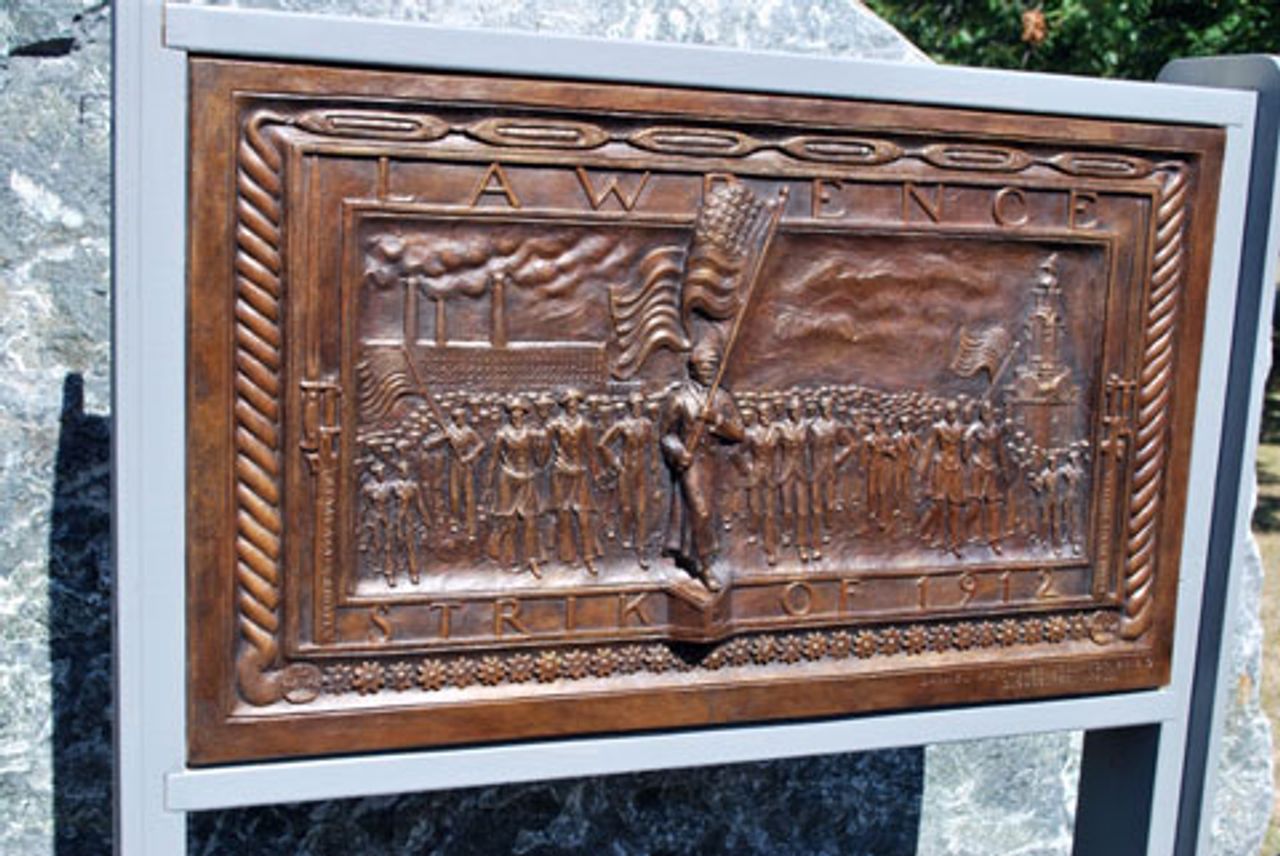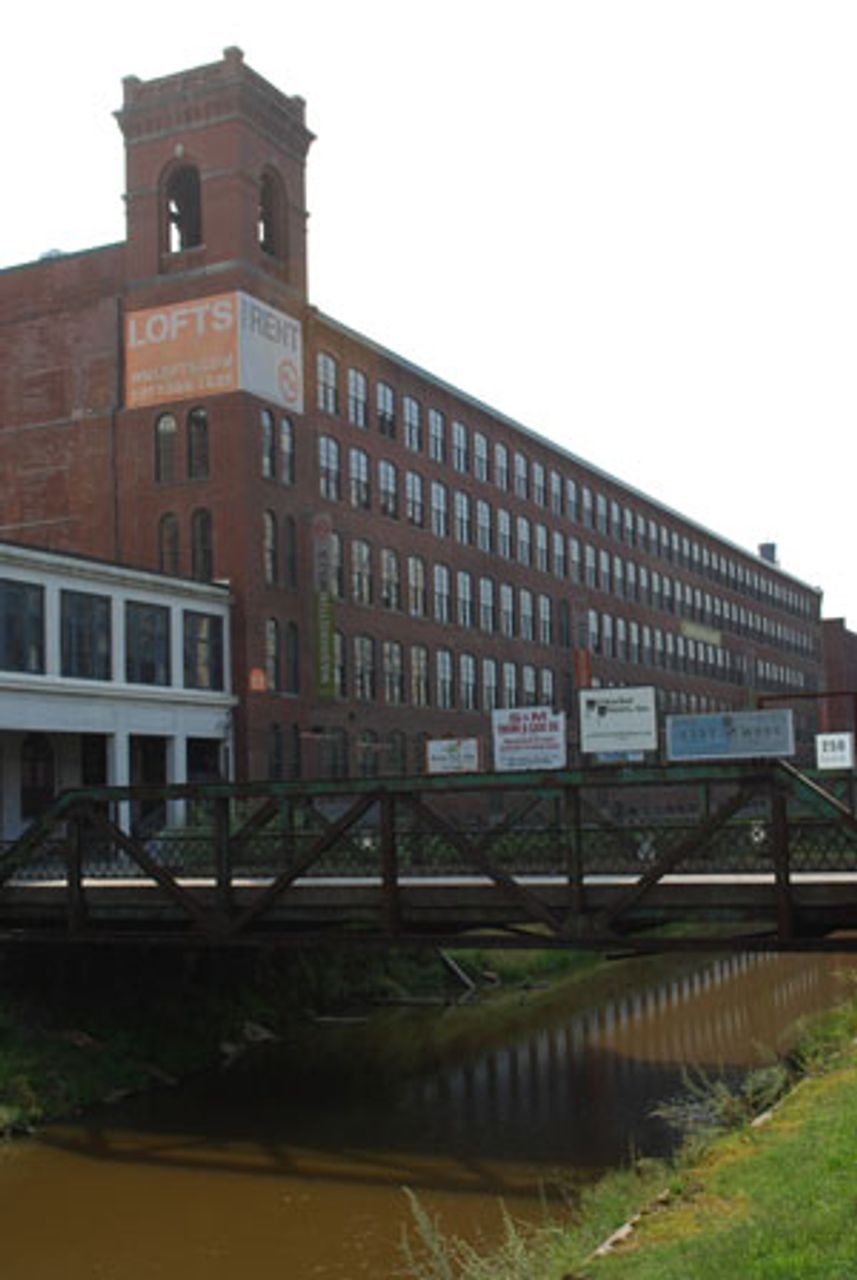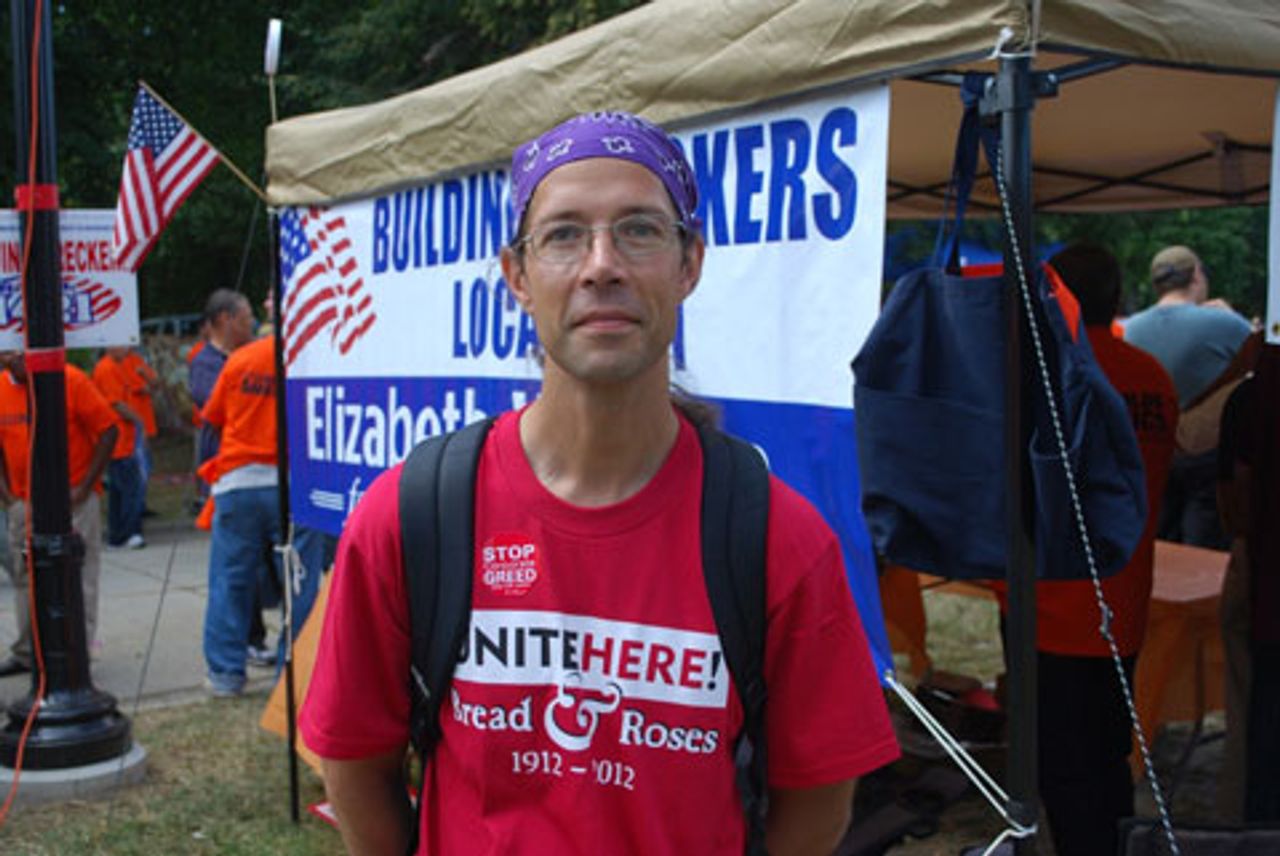Supporters of the Socialist Equality Party and the World Socialist Web Site campaigned for the party’s program at a Labor Day event in Lawrence Massachusetts, September 3.
The event included a Bread and Roses Festival, where a memorial plaque commemorating the 1912 textile workers strike which shut down mills across the city was unveiled on Lawrence Common.
 The monument unveiled in honor of the 1912 strikers
The monument unveiled in honor of the 1912 strikersThe Lawrence Textile Strike was a mass struggle of immigrant workers in Lawrence, Massachusetts, led by the Industrial Workers of the World and the Italian Socialist Federation of the Socialist Party of America. It was prompted by the decision of the mill owners to reduce the workers’ pay in response to a new Massachusetts law requiring a reduction in the working week for women and children from 56 to 54 hours per week.
On January 11, 1912, the first pay-day after the legislation became effective, workers discovered their employers had reduced weekly pay to match the reduction in hours. That difference in wages was equivalent to several loaves of bread, hence the name “Bread and Roses” by which the strike became known.
Female Polish weavers at the Everett Cotton Mills were the first to down tools when they discovered their pay had been reduced by 32 cents. They marched from the mill through the city shouting “short pay, short pay!” and were quickly supported by workers at other mills. Within a week, more than 20,000 workers were on strike, bringing the textile industry of Lawrence to its knees.
Explaining that 100 years later workers today face an unprecedented assault on wages and social conditions, SEP supporters distributed copies of the 2012 election statement issued by the SEP candidates for president and vice president, Jerry White and Phyllis Scherrer. Copies of a statement on the situation confronting gold miners in South Africa were also widely distributed.
 One of the many abandoned mills throughout
One of the many abandoned mills throughout Lawrence converted into loft apartments
The strike wave in South Africa has broken out in opposition to the National Union of Mineworkers, South Africa’s largest union and a pillar of the African National Congress government. The NUM has defended a massacre at the Lonmin’s Marikana mine and demanded the jailing of militant miners.
The 1912 strike in Lawrence took place in a bitter struggle against the American Federation of Labor (AFL). The United Textile Workers worked to break the strike, while the AFL collaborated with the mill owners in attempting to keep negotiations on a mill-by-mill basis.
Once again workers internationally are confronted with the need for a new leadership, independent of both bourgeois parties and the official trade unions.
Once the heartland of the industrial revolution, Lawrence is today among the most impoverished cities in Massachusetts. Figures from the 2011 Census show that Lawrence had a per capita income over the previous 12 months of $16,557, compared to $33,966 for the state as a whole. Median value of owner-occupied housing units in the city was $258,100 compared to $352,300 for all of Massachusetts, while home ownership was 34.8 percent compared to 64.0 percent for the state.
These figures give only a partial picture of the conditions facing those currently occupying the so-called Immigrant City.
Several workers and young people purchased copies of the SEP’s program, The Breakdown of Capitalism & the Fight for Socialism in the United States, and made financial donations to the campaign.
 Steve
SteveAsked his views about the November elections, Steve said, “I’m not thrilled with Romney, mainly because I see a lot of the problems we are having now are caused by overindulgence. The rich class are over indulging themselves, wrecking our economy. They are doing quite well while most of us are not.”
“Obama, I don’t see him as really doing anything to redress that,” Steve added, “So the one candidate that I have found here that is doing anything is [Green Party candidate] Jill Stein. They are more focused on building economic equality, being less amenable to the rich and more favorable to the environment.
“I really just started learning about them a couple of days ago. What made me take a look is their presidential candidate and their candidate for vice president were arrested for civil disobedience at a bank demonstration. So I support that line of action more than what the two major parties are doing.”
The SEP supporters noted that the Greens are seeking to capitalize on the popular support for the Occupy protest movements and frame themselves as supporters of the 99 percent while putting forward no program to alleviate the conditions confronting the working class. They raised the role of the Greens internationally, where they share power with the main bourgeois parties and advance the same pro-capitalist policies of austerity and cuts. They explained that what is required is a party that bases itself on a socialist program in opposition to the policies of the capitalist parties that defend the interests of a privileged ruling class.
Steve responded, “I’ve always thought of socialism like this: capitalism is working to make the rich people richer and socialism is workers working to make the working class better. I think that is a lot fairer and gives more people a chance.”
Discussing the party’s program for the defense of the social rights of the working class against the insistence of bourgeois politicians that there is no money, Steve said, “There is plenty of money, it is just that only a couple of people have it.”
The author also recommends:
Workers in Lawrence, Massachusetts, speak on jobs crisis
[9 September 2011]
Subscribe to the IWA-RFC Newsletter
Get email updates on workers’ struggles and a global perspective from the International Workers Alliance of Rank-and-File Committees.
